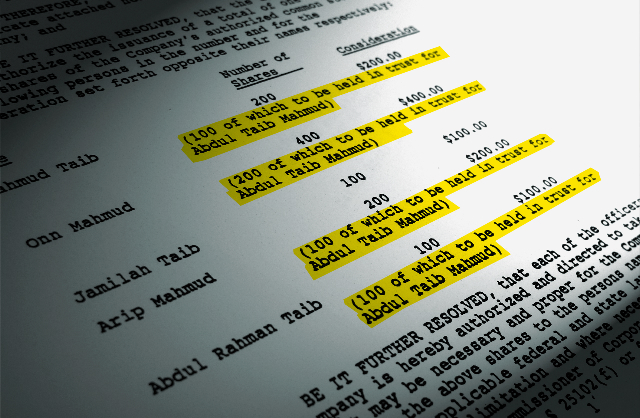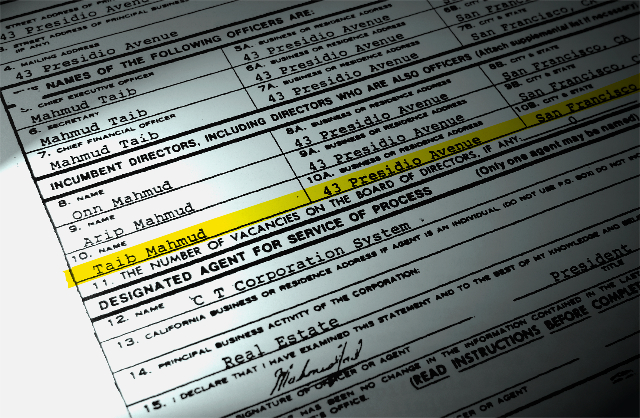July 31, 2010
JULY 31 — Thank you for inviting me to speak with you. I am truly honoured. I have played some small role in the life of this nation, but having been on the wrong side of one or two political fights with the powers that be, I am not as close to the young people of this country as I would hope to be. History, and the 8 o’clock news, are written by the victors. In recent years the government’s monopoly of the media has been destroyed by the technology revolution.
You could say I was also a member of the UKEC. Well I was, except that belonged to the predecessor of the UKEC by more than fifty years, The Malayan Students Union of the UK and Eire. I led this organisation in 1958/59. I was then a student of Queen’s University at Belfast, in a rather cooler climate than Kota Bharu’s.
Your invitation to participate in the MSLS was prefaced by an essay which calls for an intellectually informed activism. I congratulate you on this. The Youth of today, you note, “will chart the future of Malaysia.” You say you “no longer want to be ignored and leave the future of our Malaysia at the hands of the current generation.” You “want to grab the bull by the horns... and have a say in where we go as a society and as a nation.”I feel the same, actually. A lot of Malaysians feel the same. They are tired of being ignored and talked down to by swaggering mediocrities.
You are right. The present generation in power has let Malaysia down.
But also you cite two things as testimony of the importance of youth and of student activism to this country, the election results of 2008 and “the Prime Minister’s acknowledgement of the role of youth in the development of the country.”
So perhaps you are a little way yet from thinking for yourselves. The first step in “grabbing the bull by the horns” is not to required the endorsement of the Prime Minister, or any Minister, for your activism.
Politicians are not your parents. They are your servants. You don’t need a government slogan coined by a foreign PR agency to wrap your project in. You just go ahead and do it.
When I was a student our newly formed country was already a leader in the postcolonial world. We were sought out as a leader in the Afro-Asian Conference which inaugurated the Non-Aligned Movement and the G-77. The Afro-Asian movement was led by such luminaries as Zhou En-lai, Nehru, Kwame Nkrumah, Soekarno. Malaysians were seen as moderate leaders capable of mediating between these more radical leaders and the West. We were known for our moderation, good sense and reliability.
We were a leader in the Islamic world as ourselves and as we were, without our leaders having to put up false displays of piety. His memory has been scrubbed out quite systematically from our national consciousness, so you might not know this or much else about him, but it was Tengku Abdul Rahman established our leadership in the Islamic world by coming up with the idea of the OIC and making it happen.
Under his leadership Malaysia led the way in taking up the anti-apartheid cause in the Commonwealth and in the United Nations, resulting in South Africa’s expulsion from these bodies.
Here was a man at ease with himself, made it a policy goal that Malaysia be “a happy country”. He loved sport and encouraged sporting achievement among Malaysians. He was owner of many a fine race horse.
He called a press conference and had a beer with his stewards when his horse won at the Melbourne Cup. He had nothing to hide because his great integrity in service was clear to all. Now we have religious and moral hypocrites who cheat, lie and steal in office but never have a drink, who propagate an ideologically shackled education system for all Malaysians while they send their own kids to elite academies in the West.
Speaking of football. You’re too young to have experienced the Merdeka Cup, which Tunku started. We had a respectable side in the sixties and seventies. Teams from across Asia would come to play in Kuala Lumpur. Teams such as South Korea and Japan, whom we defeated routinely. We were one of the better sides in Asia. We won the Bronze medal at the Asian games in 1974 and qualified for the Moscow Olympics in 1980. Today our FIFA ranking is 157 out of 203 countries. That puts us in the lowest quartile, below Maldives (149), the smallest country in Asia, with just 400,000 people living about 1.5 metres above sea level who have to worry that their country may soon be swallowed up by climate change. Here in ASEAN we are behind Indonesia, Thailand, Singapore, whom we used to dominate, and our one spot above basketball-playing Philippines.
The captain of our illustrious 1970’s side was Soh Chin Aun. Arumugam, Isa Bakar, Santokh Singh, James Wong and Mokhtar Dahari were heroes whose names rolled off the tongues of our schoolchildren as they copied them on the school field. It wasn’t about being the best in the world, but about being passionate and united and devoted to the game.
It was the same in Badminton, except at one time we were the best in the world. I remember Wong Peng Soon, the first Asian to win the All-England Championship, and then just dominated it throughout the 1950. Back home every kid who played badminton in every little kampong wanted to call himself Wong Peng Soon. There was no tinge of anybody identifying themselves exclusively as Chinese, Malays, Indian. Peng Soon was a Malaysian hero. Just like each of our football heroes. Now we do not have an iota of that feeling. Where has it all gone?
I don’t think it’s mere nostalgia that that makes us think there was a time when the sun shone more brightly upon Malaysia. I bring up sport because it has been a mirror of our more general performance as nation. When we were at ease with who we were and didn’t need slogans to do our best together, we did well. When race and money entered our game, we declined. The same applies to our political and economic life
Soon after independence we were already a highly successful developing country. We had begun the infrastructure building and diversification of our economy that would be the foundation for further growth. We carried out an import-substitution programme that stimulated local productive capacity. From there we started an infrastructure buildup which enabled a diversification of the economy leading to rapid industrialisation. We carried out effective programmes to raise rural income and help with landless with programmes such as FELDA. Our achievements in achieving growth with equity were recognised around the world. We were ahead of Our peer group in economic development were South Korea, Hong Kong, Singapore and Taiwan, and we led the pack. I remember we used to send technical consultants to advise the South Koreans.
By the lates nineties, however, we had fallen far behind this group and were competing with Thailand and Indonesia. Today, according to the latest World Investment Report, FDI into Malaysia is at about a twenty year low. We are entering the peer group of Cambodia, Myanmar and the Philippines as an investment destination. Thailand, despite a month long siege of the capital, attracted more FDI than we did last year. Indonesia and Vietnam far outperform us, not as a statistical blip but consistently. Soon we shall have difficulty keeping up with The Philippines. This, I believe, is called relegation. If we take into account FDI outflow, the picture is even more interesting. Last year we received US$1.38 billion (RM4.40 billion) in investments but US$ 8.04 billion flowed out. We are the only country in Southeast Asia which has suffered nett FDI outflow. I am not against outward investment. It can be a good thing for the country. But an imbalance on this scale indicates capital flight, not mere investment overseas.
Without a doubt, Malaysia is slipping. Billions have been looted from this country, and billions more are being siphoned out as our entire political structure crumbles. Yet we are gathered here in comfort, in a country that still seems to ‘work.’ Most of the time. This is due less to good management than to the extraordinary wealth of this country. You were born into a country of immense resources both natural and cultural and social. We have been wearing down this advantage with mismanagement and corruption. With lies, tall tales and theft. We have a political class unwilling or unable to address the central issue of the day because they have grown fat and comfortable with a system built on lies and theft. It is easy to fall into the lull caused by the combination of whatever wealth has not been plundered and removed and political class that lives in a bubble of sycophancy.
I urge you not to fall into that complacency. It is time to wake up. That waking up can begin here, right here, at this conference. Not tomorrow or the day after but today. So let me, as I have the honour of opening this conference, suggest the following:
- Overcome the urge to have our hopes for the future endorsed by the Prime Minister. He will have retired, and I’ll be long gone when your future arrives. The shape of your future is being determined now.
- Resist the temptation to say “in line with” when we do something. Your projects, believe it or not, don’t have to be in line with any government campaign for them to be meaningful. You don’t need to polish anyone’s apple. Just get on with what you plan to do.
- Do not put a lid on certain issues as “sensitive” because someone said they are. Or it is against the Social Contract. Or it is “politicisation”. You don’t need to have your conversation delimited by the hyper-sensitive among us. Sensitivity is often a club people use to hit each other with. Reasoned discussion of contentious issues builds understanding and trust. Test this idea.
- It’s not “uber-liberal” to ask for an end to having politics, economic policy, education policy and everything and the kitchen sink determined by race. It’s called growing up. Go look up “liberal” in a dictionary.
- Please resist the temptation to say Salam 1 malaysia, or Salam Vision 2020 or Salam Malaysia Boleh, or anything like that. Not even when you are reading the news. It’s embarrassing. I think it’s OK to say plain old salam the way the Holy Prophet did, wishing peace unto all humanity. You say you want to “promote intellectual discourse.” I take that to mean you want to have reasonable, thought-through and critical discussions, and slogans are the enemy of thought. Banish them.
- Don’t let the politicians you have invited here talk down to you.
- Don’t let them tell you how bright and “exuberant” you are, that you are the future of the nation, etc. If you close your eyes and flow with their flattery you have safely joined the caravan, a caravan taking the nation down a sink hole. If they tell you the future is in your hands kindly request that they hand that future over first. Ask them how come the youngest member of our cabinet is 45 and is full of discredited hacks? Our Merdeka cabinet had an average age below thirty. You’re not the first generation to be bright. Mine wasn’t too stupid. But you could be the first generation of students and young graduates in fifty years to push this nation through a major transformation. And it is a transformation we need desperately.
- You will be told that much is expected of you, much has been given to you, and so forth. This is all true. Actually much has also been stolen from you. Over the last twenty five years, much of the immense wealth generated by our productive people and our vast resources has been looted. This was supposed to have been your patrimony. The uncomplicated sense of belonging fully, wholeheartedly, unreservedly, to this country, in all it diversity, that has been taken from you.
Our sense of ourselves as Malaysians, a free and united people, has been replaced by a tale of racial strife and resentment that continues to haunt us. The thing is, this tale is false.
The most precious thing you have been deprived of has been your history. Someone of my generation finds it hard to describe what must seem like a completely different country to you now. Malaysia was not born in strife but in unity. Our independence was achieved through a demonstration of unity by the people in supporting a multiracial government led by Tengku Abdul Rahman. That show of unity, demonstrated first through the municipal elections of 1952 and then through the Alliance’s landslide victory in the elections of 1955, showed that the people of Malaya were united in wanting their freedom.
We surprised the British, who thought we could not do this.
Today we are no longer as united as we were then. We are also less free. I don’t think this is a coincidence. It takes free people to have the psychological strength to overcome the confines of a racialised worldview. It takes free people to overcome those politicians bent on hanging on to power gained by racialising every feature of our life including our football teams.
Hence while you are at this conference, let me argue, that as an absolute minimum, we should call for the repeal of unjust and much abused Acts which are reversals of freedoms that we won at Merdeka.
I ask you in joining me in calling for the repeal of the ISA and the OSA. These draconian laws have been used, more often than not, as political tools rather than instruments of national security. They create a climate of fear. These days there is a trend among right wing nationalist groups to identify the ISA with the defence of Malay rights. This is a self-inflicted insult on Malay rights. As if our Constitutional protections needed draconian laws to enforce them. I wish they were as zealous in defending our right not to be robbed by a corrupt ruling elite. We don’t seem to be applying the law of the land there, let alone the ISA.
I ask you to join me in calling for the repeal of the Printing and Publications Act, and above all, the Universities and Colleges Act. I don’t see how you can pursue your student activism with such freedom and support in the UK and Eire while forgetting that your brethren at home are deprived of their basic rights of association and expression by the UCA. The UCA has done immense harm in dumbing down our universities.
We must have freedom as guaranteed under our Constitution. Freedom to assemble, associate, speak, write, move. This is basic. Even on matters of race and even on religious matters we should be able to speak freely, and we shall educate each other.
It is time to realise the dream of Dato’ Onn and the spirit of the Alliance, of Tunku Abdul Rahman. That dream was one of unity and a single Malaysian people. They went as far as they could with it in their time. Instead of taking on the torch we have reversed course. The next step for us as a country is to move beyond the infancy of race-based parties to a non-racial party system. Our race-based party system is the key political reason why we are a sick country, declining before our own eyes, with money fleeing and people telling their children not to come home after their studies.
So let us try to take 1 Malaysia seriously. Millions have been spent putting up billboards and adding the term to every conceivable thing. We even have cuti-cuti 1 Malaysia. Can’t take a normal holiday anymore.
This is all fine. Now let us see if it means anything. Let us see the Government of the day lead by example. 1 Malaysia is empty because it is propagated by a Government that promotes the racially-based party system that is the chief cause of our inability to grow up in our race relations. Our inability to grow up in our race relations is the chief reason why investors, and we ourselves, no longer have confidence in our economy. The reasons why we are behind Maldives in football, and behind the Philippines in FDI, are linked.
So let us take 1 Malaysia seriously, and convert Barisan Nasional into a party open to all citizens. Let it be a multiracial party open to direct membership. PR will be forced to do the same or be left behind the times. Then we shall have the vehicles for a two party, non-race-based system.
If Umno, MIC or MCA are afraid of losing supporters, let them get their members to join this new multiracial party. PR should do the same. Nobody need feel left out. Umno members can join en masse. The Hainanese Kopitiam Association can join whichever party they want, or both parties en masse if they like. We can maintain our cherished civil associations, however we choose to associate. But we drop all communalism when we compete for the ballot. When our candidates stand for Elections, let them ever after stand only as Malaysians, better or worse.
Now let’s have a discussion.
* Tengku Razaleigh Hamzah’s speech at the UKEC’s Fourth Malaysian Students Leadership Seminar in Kuala Lumpur on July 31, 2010.








![images[2]](http://sarawakreport.org/site/wp-content/uploads/2010/08/images2.jpg)






![laila taib sulaiman[1]](http://sarawakreport.org/site/wp-content/uploads/2010/06/laila-taib-sulaiman11-300x215.jpg)






